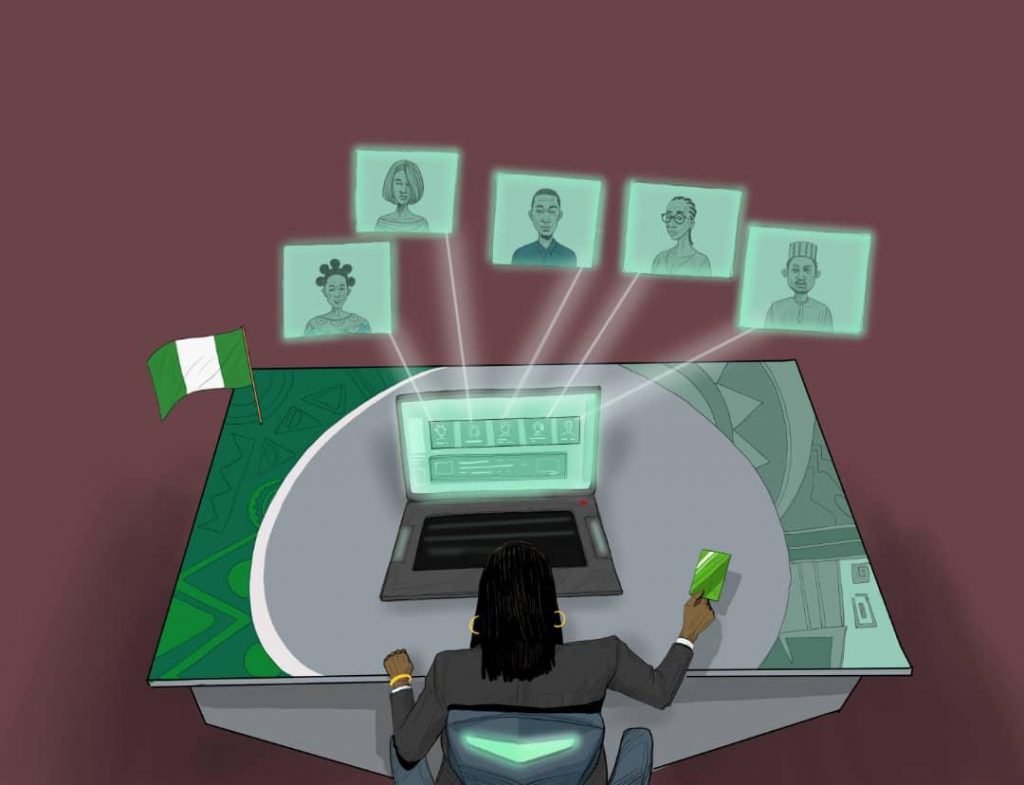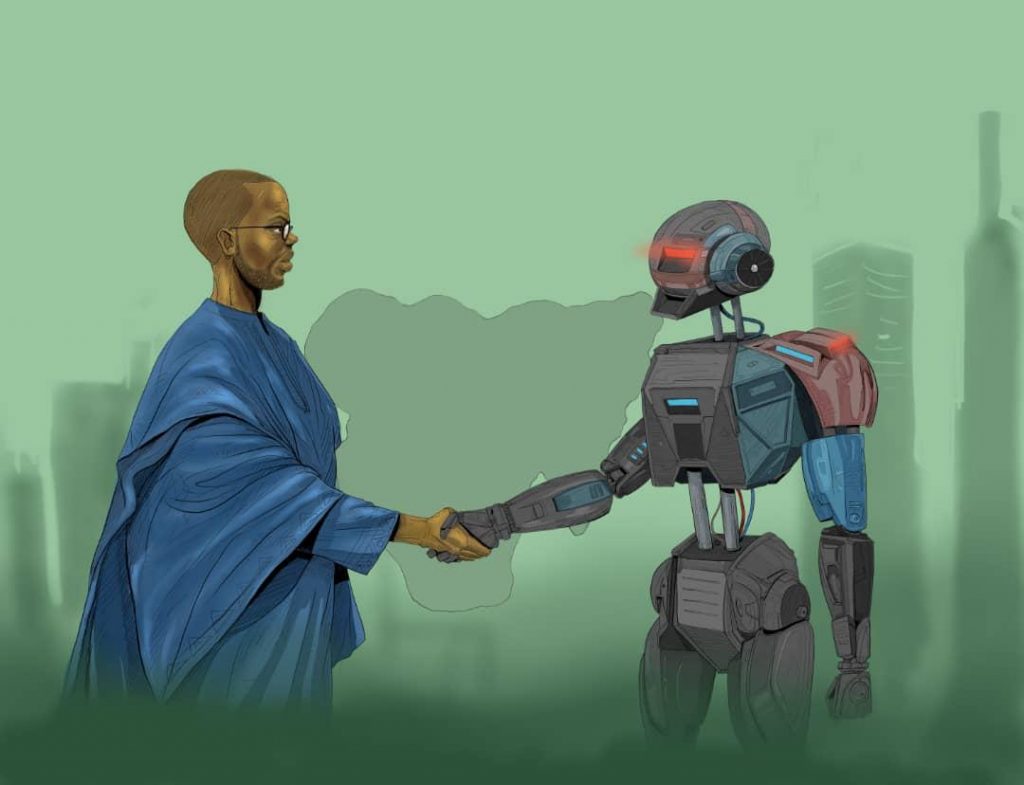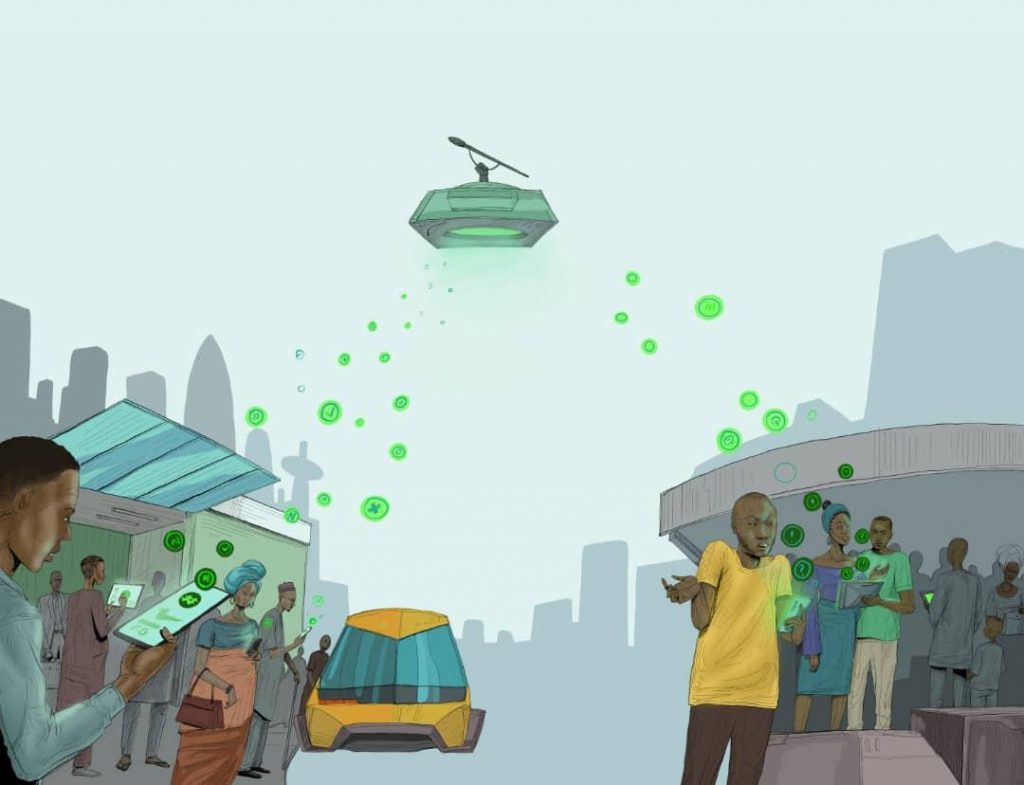Vision: the future of AI and Tech
Only good data governance can ensure that our culture and norms are not eroded in the face of rapid advancement in artificial intelligence and robotics.
It is currently 2050, we exist in a world where technology and artificial intelligence are at the centre of operations in many sectors, including health, transportation, agriculture, etc. Mariam Yabusi has just been announced as the Minister of Science and Technology, a huge step forward in gender equality as she is the first woman to uphold that title since its establishment in 1980.
Ecowas has issued a Code Red operation to solve the increasing unemployment posed by the rise in technology and specifically Artificial Intelligence (AI). Miss Mariam Yabusi however, is not alarmed by the crumbling global job market. In her inauguration speech, she details her plan for Nigeria and how she believes opportunities can be realised in the ever-changing role of technology in society.
Her first task was to analyse the current jobs that are niche, and manual could disappear, forcing individuals to retrain and potentially turn to a tech career. She uses her experience in the World Bank. Drawing on links with international government bodies she strikes a foreign direct investment deal with Canada, enabling those who have lost their jobs to retrain as virtual assistants. They help entrepreneurs to manage the different AI devices they own and use emotional intelligence to assist stressed entrepreneurs to achieve work-life balance. This new development has already positively enhanced the economy, with unemployment going down by 8%, just six months after the deal started.
Following on her success story Mariam pushes the agenda for gender equality by creating a quota to increase the inclusion of women in decision-making at different levels of governance. She has the buy-in from Vice president Affie Itimi, who is also keen to ensure that all strata of society, from policy to technological innovation, are inclusive. This could potentially lead to an increase in anti-feminism rhetoric by people who feel dissatisfied by the rise in gender equality.

Mariam’s second line of action was Robotics, blockchains, augmented virtual reality and space technology. She was committed to utilise these technologies to develop innovative solutions to the issues of the economy, environment and other problems the country faces. One notable invention is the use of Blockchain technology to highlight the various supply chains in which a product or service was produced. This ensured that suppliers become more ethical in creating goods and services.With the current erosion of culture and issues of many languages being at the brink of extinction, Mariam allocated funds to be used for a range of technological solutions to preserve and restore much cultural, traditional and native heritage. The project uses audio means of cultural exchange and oral historical accounts. The use of virtual reality allows users to reimagine what the world was like 100 years ago and even as far back as 1000 BC. Despite her achievement, she has been criticised for the increasing use of technology leading to an erosion of communities, as individuals have become too dependent on technology to connect with the world. This loss of face-to-face interaction has lead to a decline in social skills and promoting a more individualist culture. Eager to tackle this issue, In collaboration with the Ministry of Sports, Maryam has created a fund to enable social organisations to target their work in various communities to build cohesion.
Good data governance is ensuring the absolute privacy of people’s private data. Although there may be many data breaches, more advanced technologies like Lamba has been developed and used to improve data security. Mariam understands that is the fibre that connects our smart city. Data collected by the Federal government is strictly used for the implementation of policies and programmes. Our revised constitution also prohibits the sale of data to any third party. Companies and organisations found wanting could lose their license and forfeit their investment in the country.

The most recent development from the Ministry of Science and Technology to digitise voting and openly track developments and financial decisions by the government has been the biggest game-changer, as it provides the daily performance of the government to help voters make an informed decision during elections. Mariam stated in her last interview that being ethical requires accountability and transparency, which must be mandatory by the government to ensure that data is collected, stored, and used ethically.
Download story as PDF